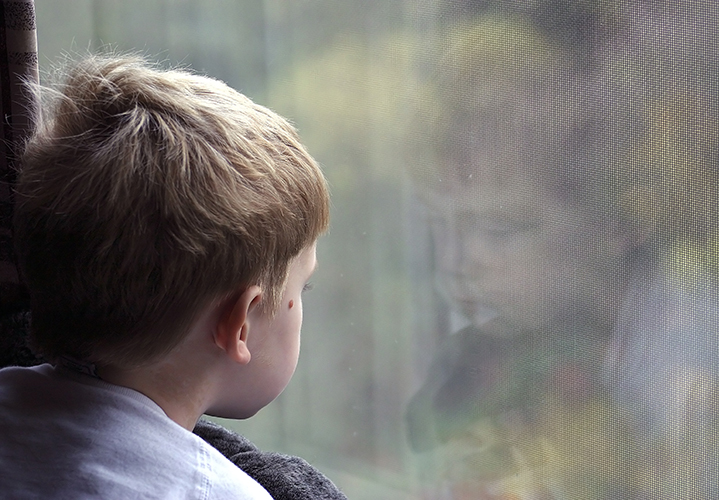For years, lawyers, social service professionals, charities and most importantly, victims, have identified serious gaps in the legislation used to address domestic abuse. With the Crime Survey for England and Wales reporting in March 2020 that an estimated 2.3 million adults had experienced domestic abuse in the previous 12 months, the Domestic Abuse Act 2021, which attempts to address previous failings, has been welcomed.
Former legislation had focussed on explicitly violent acts and protection for victims was only extended to adults who lived, or were in an intimate relationship with the perpetrator of the violence.
Coercive and controlling behaviour was covered by the Serious Crime Act 2015 but neither that act nor the former Domestic Abuse Act gave any protection to those suffering that behaviour where they were no longer cohabiting with their controlling former spouse or partner.
Updates to the domestic abuse legislation were promised in the Queen’s Speech 2017 but the Domestic Abuse Act 2021 did not receive royal assent until 29th April 2021, with a number of provisions coming into force on 1st October 2021. These latest provisions provide a definition of abuse, extend the requirements as to the relationship of the parties and open up more local authority support for victims. These updates will be particularly pertinent in proceedings in the family courts and hopefully will offer some desperately needed support to those who were previously excluded.
The Act
The Domestic Abuse Act 2021 provides the first statutory definition of domestic abuse which is defined as:
- Where the perpetrator and victim are both ages 16 or older,
- The behaviour is abusive; and
- The victim and perpetrator have a relationship that makes them "personally connected".
"Abusive" behaviour is described as:
- Physical or sexual abuse;
- Violent or threatening behaviour;
- Controlling or coercive behaviour;
- Economic abuse;
- Physiological, emotional or other abuse.
And the meaning of "personally connected" has been extended to include people who:
- are or have been married to each other;
- are or have been civil partners of each other;
- are or have been engaged to marry one another;
- have entered into a civil partnership agreement;
- are or have been in an intimate relationship with one another;
- have each had a parental relationship in relation to the same child.
The Act also now allows for children to be seen as the victims of domestic abuse – rather than as "witnesses" if they "see or hear, or experience the effects of, the abuse".
Domestic Abuse Protection Notices (DAPN) and Domestic Abuse Protection Orders (DAPO)
Under the Act, police have been given new powers to issue civil "Domestic Abuse Protection Notices", which can provide immediate protection to victims following an incident and require perpetrators to leave the home for up to 48 hours. A Domestic Abuse Protection Order can then be sought from the court so that longer-term protection can be provided.
The application for both can be made by the police applying to a magistrate’s court as well as by third parties applying direct to the family court.
You can find out more about DAPN and DAPO’s here: www.gov.uk/government/publications/domestic-abuse-bill-2020-factsheets/domestic-abuse-protection-notices-orders-factsheet
Further changes
- The "threat to disclose intimate images" has now been included as an offence.
- A new criminal offence of non-fatal strangulation has been created.
- A statutory duty has been placed on local authorities to ensure victims and their children are placed in refuges and other safe accommodation; anyone made homeless as a result of domestic abuse will automatically have ‘priority need’ for homelessness assistance.
- A victim or potential victim of abuse will be automatically eligible for access to special measures within the family court where the perpetrator is
- a party to the proceedings;
- a relative of a party to the proceedings; or
- a witness in the proceedings.
- The Domestic Abuse Bill 2021 provides that with all victims of domestic abuse it should be assumed that the victim’s ability to participate or give evidence in court proceedings will be diminished and therefore, special measures will be automatically available, should they wish to use them. This could mean that
- they are able to give their evidence from behind a screen or via video link; and
- those alleged to have committed an offence of domestic abuse are prohibited from cross-examining their victims.
Commentary
The changes will require implementation from a range of services including the police, domestic abuse services and the courts. The Law Society have welcomed them, highlighting the increase in the number of domestic abuse cases during the coronavirus pandemic. But they have also noted that the legislation alone is not enough and services for victims of domestic abuse must be properly funded. They have maintained that the new domestic abuse legislation must also be supported by a full programme of education.

 Nicola Harries
Nicola Harries Olivia Bishop
Olivia Bishop